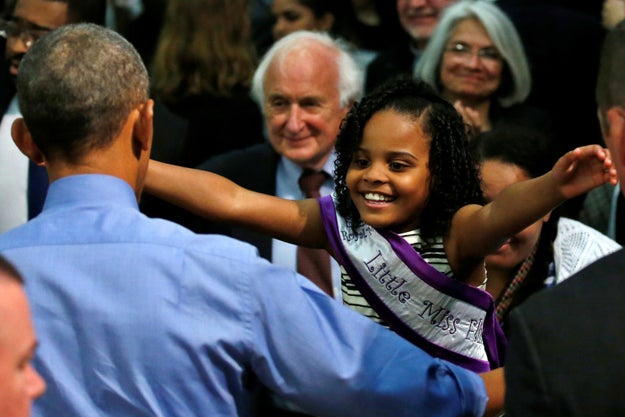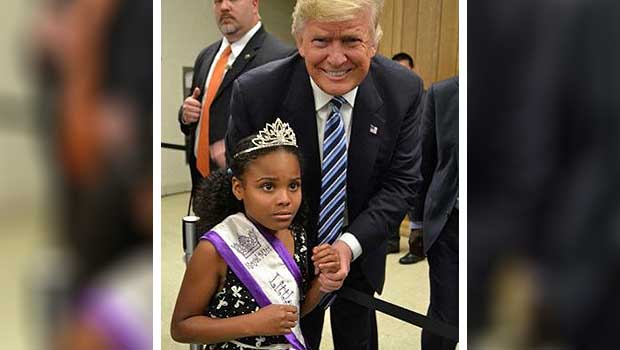It is not enough for me to stand before you tonight and condemn riots. It would be morally irresponsible for me to do that without, at the same time, condemning the contingent, intolerable conditions that exist in our society. These conditions are the things that cause individuals to feel that they have no other alternative than to engage in violent rebellions to get attention. And I must say tonight that a riot is the language of the unheard.
And what is it America has failed to hear? It has failed to hear that the plight of the negro poor has worsened over the last twelve or fifteen years. It has failed to hear that the promises of freedom and justice have not been met. And it has failed to hear that large segments of white society are more concerned about tranquility and the status quo than about justice and humanity.
- Martin Luther King, "The Other America" (March 14, 1968)
This week's featured posts are "The Skittles Analogy" and "The Asterisk in the Bill of Rights".
Some quick thoughts about the quote above: King gave this speech three weeks before his assassination, so it is very close to his last word on the subject. Such radical King quotes have largely been white-washed out of history. Instead, each January MLK Day is largely a celebration of color-blindness, as if the legacy of slavery and Jim Crow and sundown towns could just be waved off, and we could best move forward by pretending that none of it ever happened. King himself never held that view, as you will quickly see if you read entire speeches rather than a few carefully selected lines.
This week everybody was talking about Charlotte
Since the shooting of Keith Lamont Scott on Tuesday, Charlotte North Carolina has seen daily demonstrations. The demonstrations appear to have been mostly peaceful, but occasionally turned violent. One person was shot and eventually died, but police claim they didn't do it and no one seems to know who did. I haven't seen anything about whether the dead man was a protester.
To me, there seem to be two issues related to police killing blacks. First, the black community has no confidence in the investigative process, and I can understand why. Take the Freddie Gray case, for example. He was apparently healthy when Baltimore Police took him into custody, and then he died of a spinal chord injury. No one seems to be at fault; every charge has resulted in a not-guilty verdict. And in the wake of the Michael Brown shooting in Ferguson, the police seemed more interested in doing public relations for Officer Wilson than a neutral investigation.
There's at least a partial a solution to this part of the problem, and it's already law in Wisconsin: any police shooting requires an outside investigation; a police department can't be allowed to investigate its own officer.
Second, American police tactics are senselessly confrontational. Even in shootings that are judged to be justified, I'm often left wondering: "Did you really need to push it to that point?" Standard practice seems to be to start by barking orders, and then to keep escalating until either the orders are followed or the civilian is dead. That's what I see in the Scott video. In many other cases, people wind up dead because police don't understand they're dealing with someone who is deaf or mentally handicapped or otherwise incapable of understanding their demands.
Police in other countries don't behave that way, as this article about Scottish police tactics makes clear.
While we're talking about black lives not mattering, conservative columnist Glenn Reynolds tweeted "Run them down" in response to protesters who blocked an interstate in Charlotte. He then defended the tweet on his Instapundit blog. Twitter suspended his account for promoting violence, and USA Today suspended him as a columnist for a month.
If you think this isn't about race, imagine, say, white Catholics blocking a road leading to an abortion clinic. Would anybody suggest running over them?
and tonight's presidential debate
Like Frank Bruni, my main worry about the debate is that the bar for Trump has been set so low. If he makes it through the evening without calling Hillary a bitch or talking about his penis again, lots of people will be impressed by his performance. I remember the first 2000 debate, when Gore ran rings around Bush on substance, but the headlines the next morning were that Gore sighed too loudly.
One measure of what Hillary is up against is just how contradictory or constricting all the "expert" advice is: She shouldn't raise her voice or interrupt Trump. She should keep her answers short, but tell her own story and project a positive vision. Point out when he's lying but don't get mired in fact-checking. Show her intelligence and reveal his ignorance without sounding like a know-it-all. Either do or don't talk about the specifics of her plans for governing. And brush off his attacks as silly.
And then there's sexism. A woman can't possibly look "presidential", because the American people have no image of a woman being president. And I can guarantee that tomorrow morning Trump will not be criticized for shouting, frowning, interrupting, dressing wrong, blustering, not showing proper respect, or any of the things Clinton has to be on guard against. Anna Waters, a Northwestern student who debated in high school, outlines all the built-in disadvantages female debaters have to overcome. Another high school debater complains about the challenge of "trying to both confront stereotypes but at the same time being weirdly beholden to them".
and you might also be interested in
The National Museum of African-American History and Culture opened this week on the National Mall in Washington, DC.
John Oliver compares Hillary's scandals to Trump's in some detail, and then concludes:
This campaign has been dominated by scandals. But it is dangerous to think that there is an equal number on both sides. And you can be irritated by some of Hillary's; that is understandable. But you should then be f**king outraged by Trump's.
If you've been thinking that Libertarian presidential candidate Gary Johnson represents the "good" side of conservatism, you might want to think again. When he was running for president as a Republican in the 2012 cycle, he brushed off any concern about global warming, arguing that "In billions of years, the sun is going to actually grow and encompass the Earth, right? So global warming is in our future." He went on to call for building new coal-fired power plants.
In case the insanity of this remark isn't already obvious to you, imagine applying the logic to other issues: There's no point worrying about nuclear war, because the sun is eventually going to burn all our cities anyway. And after the solar catastrophe, who's going to care what our national debt was?

Elizabeth Warren crossed the border to Nashua Saturday morning to give a pep talk to the door-knockers and phone-bankers gathered at the local Democratic headquarters. I had a chance to snap this picture.
She said she was going to talk about three things that are in danger in this election, but then she added a forth. A Republican sweep in this election would result in
- ending the Affordable Care Act and defunding Planned Parenthood
- rolling back Dodd-Frank and the other Wall Street reforms that were passed after the 2008 collapse.
- Donald Trump immediately appointing a Supreme Court justice.
- "Donald Trump and the Republicans are making hate OK."
Her summary of Democratic values was
- Every young person is entitled to get an education without being crushed by debt.
- No one who works full-time should live in poverty.
- After a lifetime of hard work, people are entitled to retire in dignity.
- "Let me say something that is deeply controversial in Republican circles: We believe in science, that climate change is real, and we have a moral obligation to pass on a livable Earth."
- Equal pay for equal work and a woman's right to choose.
- When Wall Street CEOs break the rules, they should go to jail like anyone else.
- Money should not own our government.
Two sports legends worth remembering today: Golfer Arnold Palmer died yesterday at 87. He was part of that first generation of athletes that TV made into icons.
And Dodgers broadcaster Vin Scully called his last game. Scully is 88, and has been announcing Dodger games on radio and TV since 1950, when they played in Brooklyn. The Dodgers gave him a great send-off: The final play he broadcast was a walk-off homer that clinched the division title.
and ... and ...
no, I just don't have a closing in me this week. Let's hope my sense of humor recovers soon.







